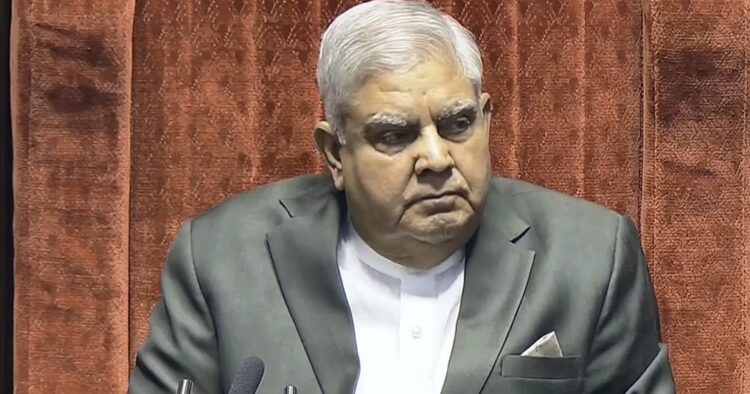In a recent turn of events in the Bharatiye Parliament, Rajya Sabha Chairman Jagdeep Dhankhar responded strongly to the mimicry incident involving Trinamool Congress MP Kalyan Banerjee. The controversy unfolded as video clips circulated on social media, depicting Banerjee allegedly mimicking the mannerisms of the Rajya Sabha Chairman during a mock sitting of the House.
Dhankhar, expressing his sentiments on the matter, stated, “I don’t care about how much you insult Jagdeep Dhankhar. But I can’t tolerate (insult of) Vice President of India, farmers community, my community… I will not tolerate that I could not protect the dignity of my post, it is my duty to protect the dignity of this House.”
The incident gained further attention when Congress leader Rahul Gandhi was observed recording Banerjee’s mimicry on his mobile phone. This led to a major controversy, sparking discussions on the appropriateness of such behavior, especially from a sitting Member of Parliament.
Critics of Banerjee’s actions argued that such behavior undermines the dignity and decorum of parliamentary proceedings. The incident raised broader questions about the conduct of politicians within the legislative framework and whether such actions are acceptable in the political arena.
The controversy reached the highest echelons of the government, with Prime Minister Narendra Modi expressing concern and condemnation over the alleged disrespectful behavior exhibited by some members of Parliament. During a phone call with West Bengal Governor Jagdeep Dhankhar, the Prime Minister emphasized the need for maintaining decorum and dignity within the parliamentary system.
The suspension of Trinamool Congress MP Kalyan Banerjee added fuel to the fire, as the incident brought to the forefront the challenges of maintaining order and respect within the parliamentary framework. As discussions continue, there is growing scrutiny on the role and responsibilities of elected representatives and the need for a code of conduct to ensure the smooth functioning of the legislative process.
In the aftermath of this controversy, it remains to be seen how parliamentary authorities will address such incidents in the future and whether there will be calls for stricter measures to uphold the sanctity of parliamentary proceedings.

















Comments